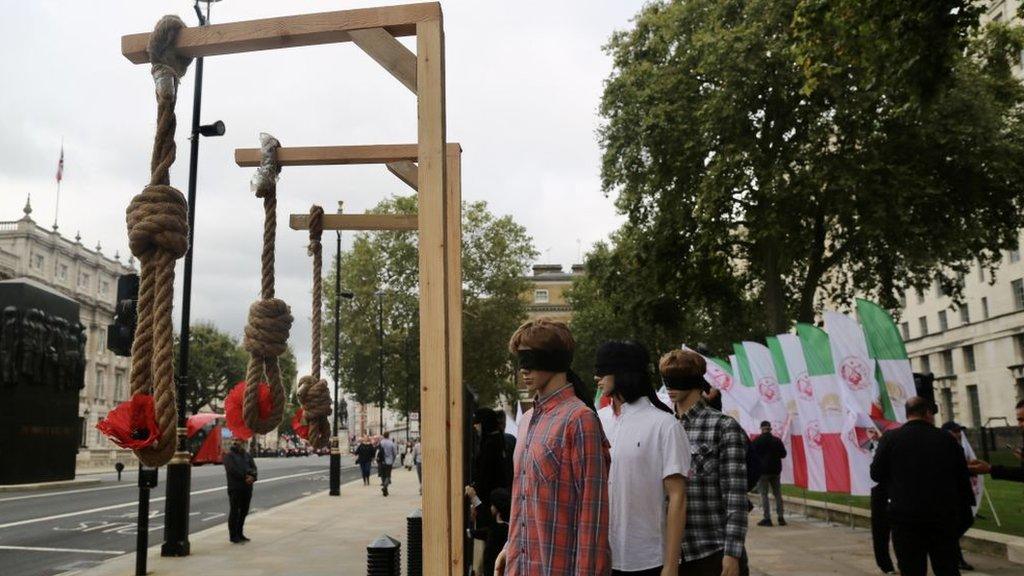Iran executions surged in 2022 to 'spread fear' - report
- Published
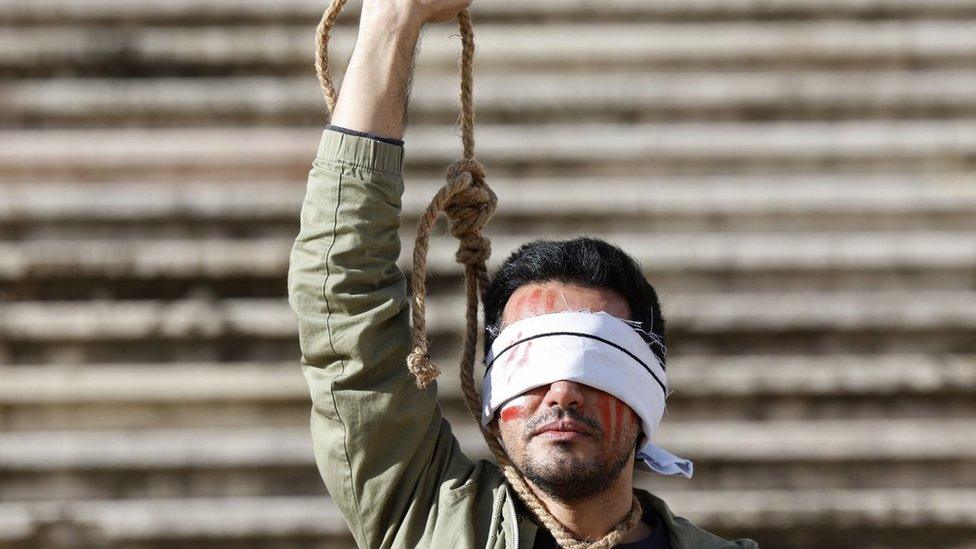
A man protests in Lisbon against Iran's execution in December of two men over the anti-government protests
Executions in Iran rose by 75% in 2022, with at least 582 people put to death as authorities sought to "spread fear" among protesters, campaign groups say.
The figure was the highest since 2015, according to Norway-based Iran Human Rights (IHR) and France's Together Against the Death Penalty (ECPM).
Their report is based both on official announcements and sources inside Iran.
Most of those executed were convicted of murder or drug charges, but two protesters were hanged in December.
Mohsen Shekari, 22, and Majidreza Rahnavard, 23, were found guilty of the vague national security charge of "enmity against God" following what the report said were "show trials" based on confessions obtained through torture.
Another two protesters were executed at the start of this year, while dozens have reportedly been sentenced to death or charged with capital offences.
The protests swept across the Islamic Republic following the death in custody of Mahsa Amini, a 22-year-old Kurdish woman who was detained by morality police in Tehran in September for allegedly wearing her hijab "improperly".


IHR and ECPM's annual report on the death penalty in Iran, external says only 71 of the executions they recorded last year were announced by official sources.
The rest were "unannounced" or "secret" executions that were reported by sources including eyewitnesses, family members, lawyers and people working for prisons or the judiciary, it adds.
According to the report, 288 (49%) of those put to death were convicted of murder, which was the highest number in 15 years. They included 13 women and three people who allegedly committed crimes when they were children.
Another 256 people (44%), including three women, were executed after being convicted of drug-related charges, up from 126 in 2021 and 10 times higher than the figure for 2020.
The report warns that the significant reduction in the number of drug-related executions that came as a result of a 2017 amendment to the Anti-Narcotics Law "has now been completely reversed in practice" and laments the "lack of reaction" from the United Nations.
The report also draws what it calls an "insidious link" between surges in executions and anti-government unrest, with one coinciding with the start of protests by teachers in May and another beginning a month after the death of Mahsa Amini.
"The international reactions to the death sentences against protesters have made it difficult for the Islamic Republic to proceed with their executions," says Mahmood Amiry-Moghaddam, IHR's director.
"To compensate, and in order to spread fear among people, the authorities have intensified the execution for non-political charges. These are the low-cost victims of the Islamic Republic's execution machine."

You may be interested in watching:
Watch: Ros Atkins on... why Iranians are taking to the streets
Related topics
- Published7 January 2023
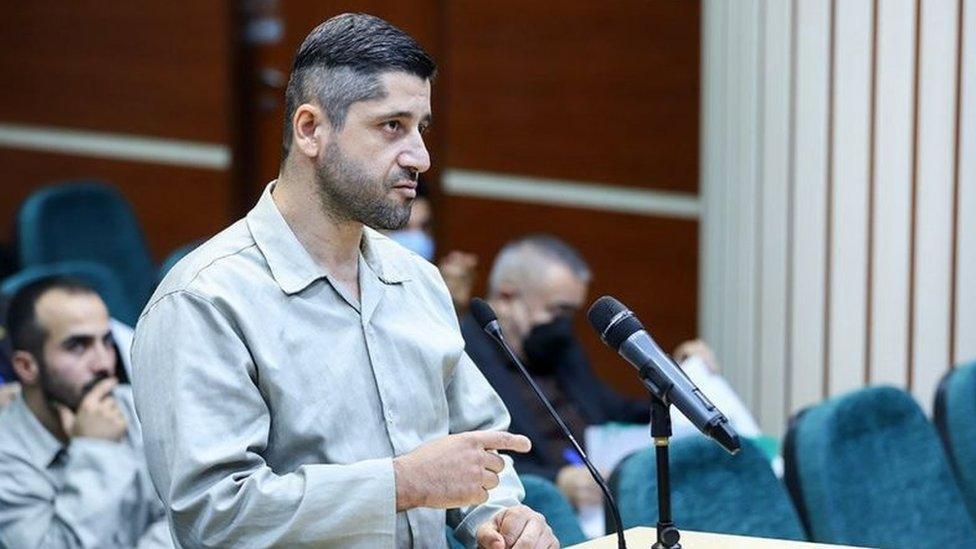
- Published28 December 2022
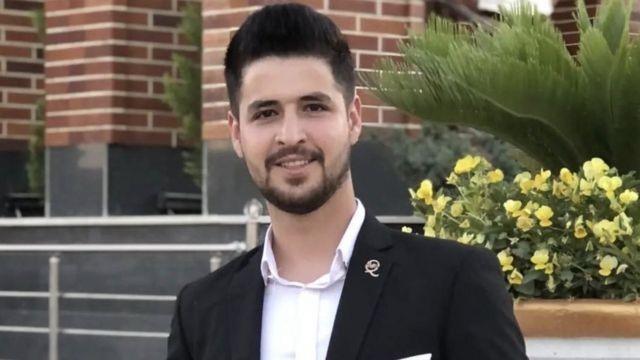
- Published12 December 2022

- Published8 December 2022
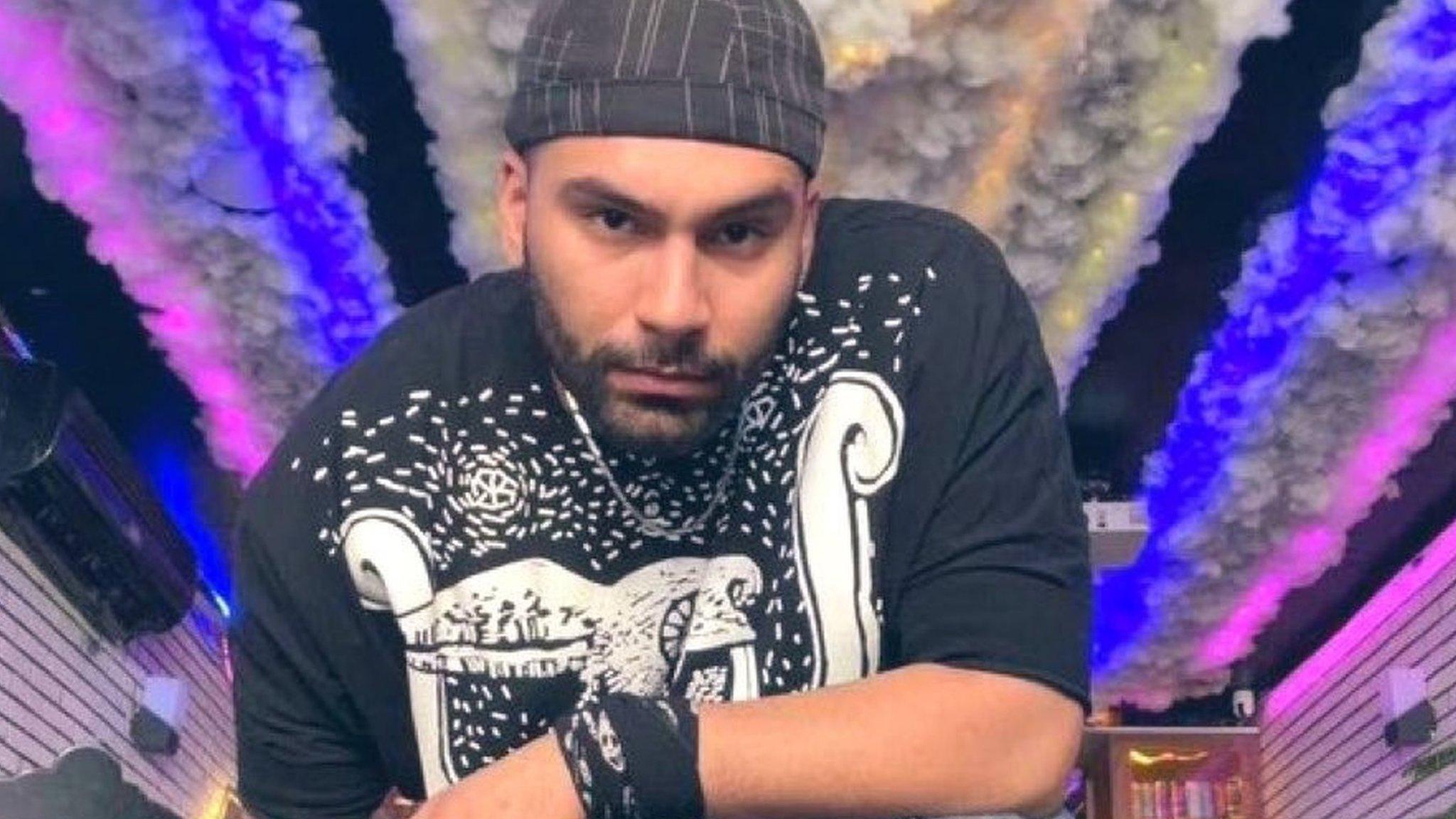
- Published28 April 2022
